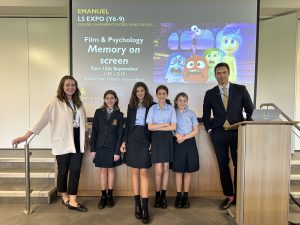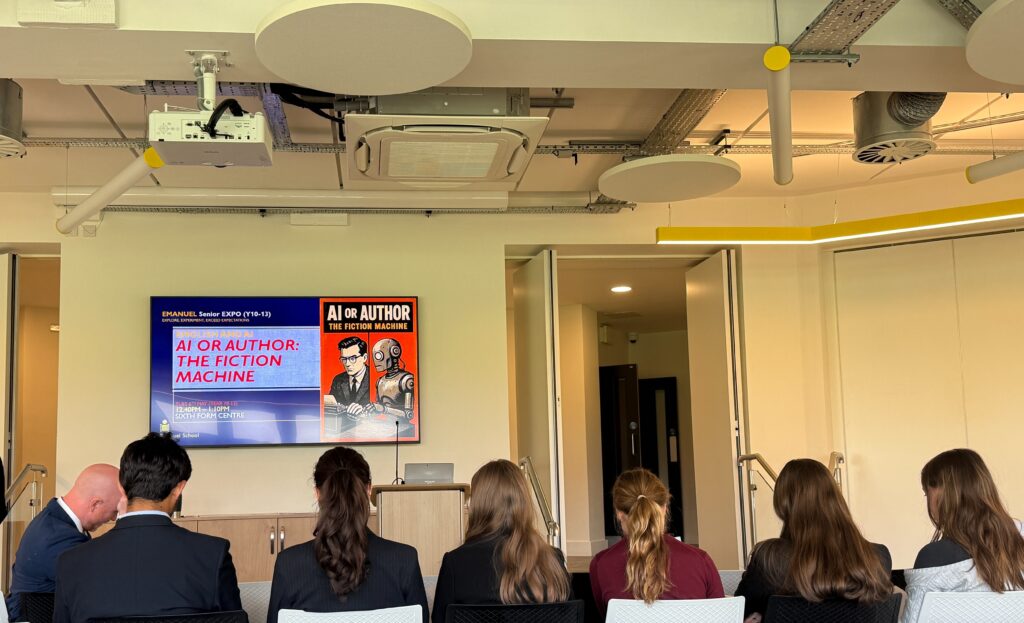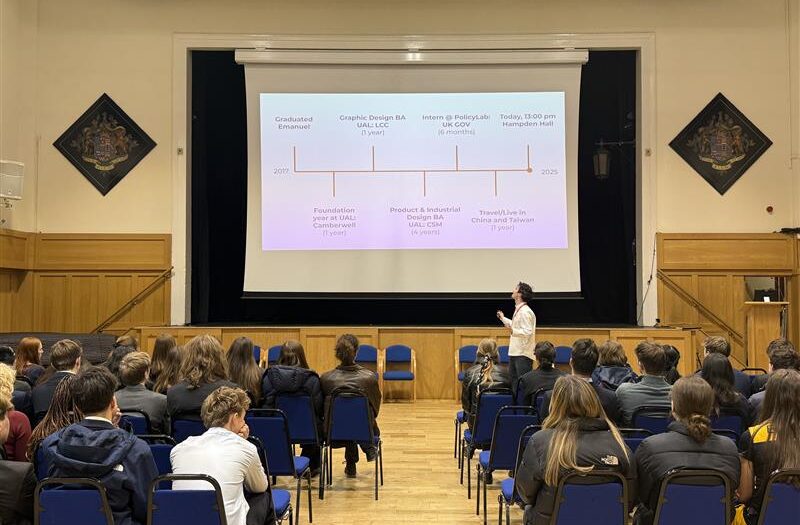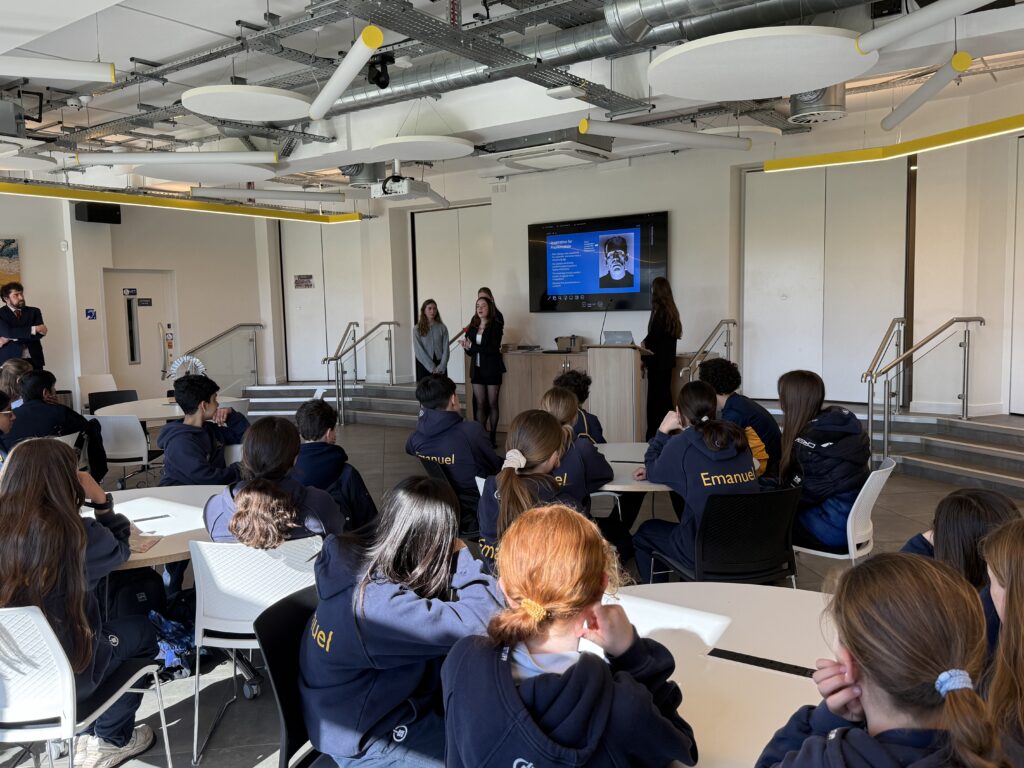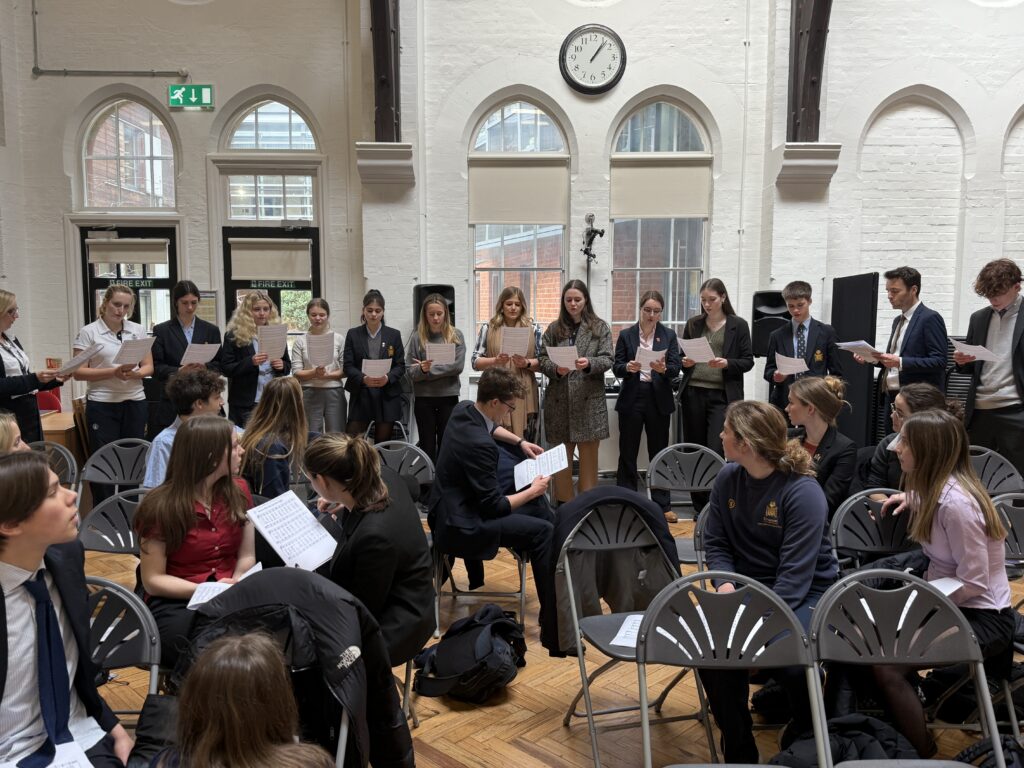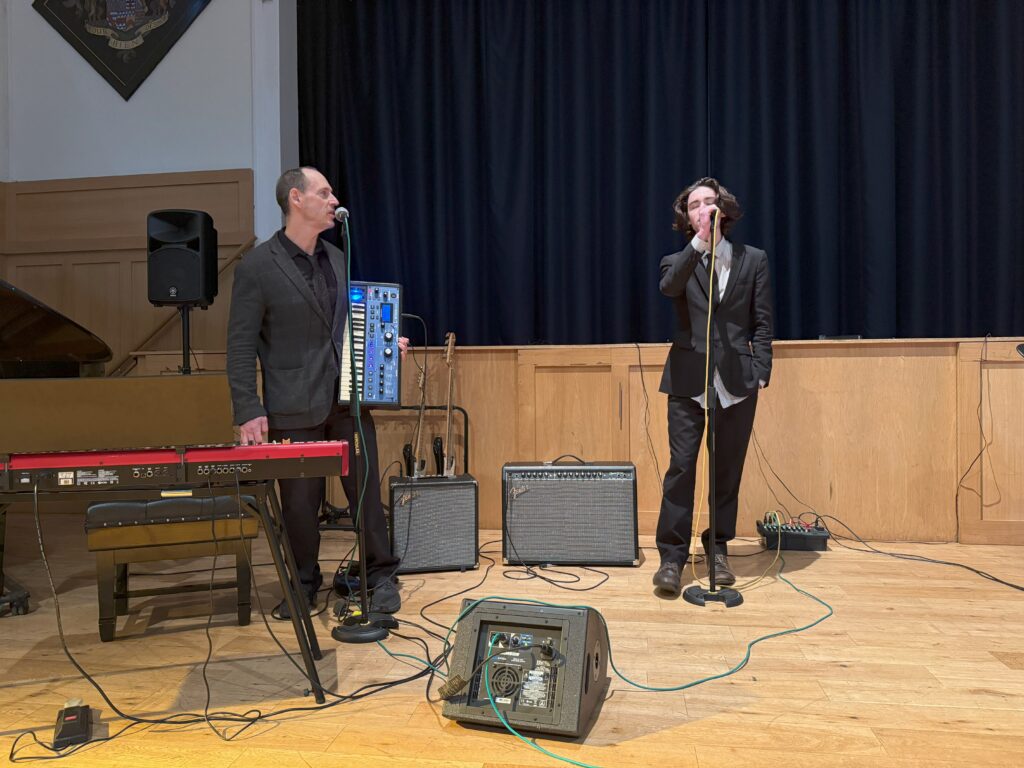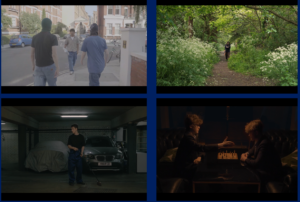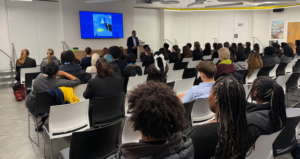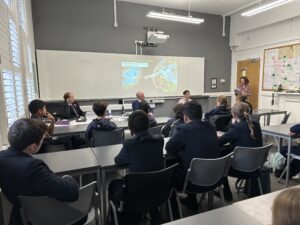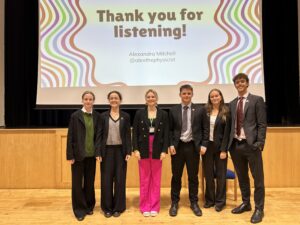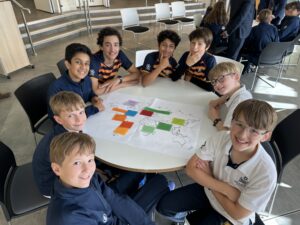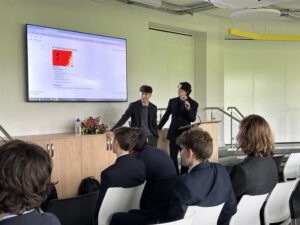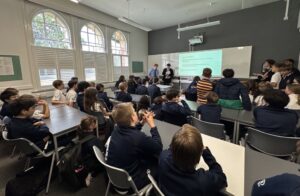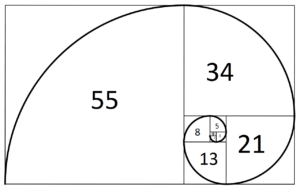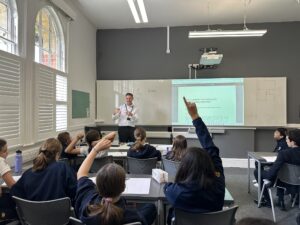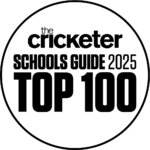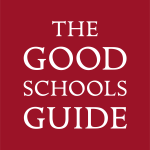Summer term, Week 6 – Music & Spanish: can you flamenco?
The Lower School Expo series finished off with a Flamenco flourish! For the last Y6-9 event of the school year, Miss Zaratugui (Spanish) took pupils through the history and practice of Flamenco. Pupils heard about the roots of this cultural art form dating back to the 1400s among the Roma from India which later flourished in Andalucia, in southern Spain and is now also spreading like dancing wildfire across the US, along with the Spanish language. They learned about the sharp contrast between Cante jondo and Cante chico, the former expressing tragedy and the latter joy. Pupils then took part in a very entertaining Flamenco workshop, trying out the core elements of Flamenco with the help of Mr Stevens (Music) and Miss Casias (Spanish). This was a carousel of toque (guitar), baile (dance) and manos pies (hands and feet). The moves are certainly harder than Miss Casais made it look. A few even got to try on the traditional Flamenco dress. Olé!
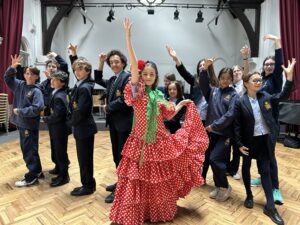
Summer term, Week 5 – Drama and English: The medieval drama origin story
It’s not often we hear shrieks in the school Chapel. Today, though, Lucifer was screaming in terror as he was banished to hell during this week’s Senior Expo, a stunning collaboration between Mr Burgess (Director of Drama) and Senior Deputy Head Mrs Peters (English). This combined an introduction to the earliest roots of theatre in the medieval period with a performance by Year 9 and 10 Drama students of The Fall of Lucifer, a Mystery Play of the era. We were treated to a superb example of how the interdisciplinary format of Expo enriches our learning, as we learned how drama emerged from the church and evolved from sacred to secular art form, while also enjoying a vivid sense of what that drama felt like in reality. Spirited performances from Eva Guilfoyle as Lucifer and Matthew Chetwood in the lead role of God casting Lucifer’s followers to hell rendered it highly dramatic in the fullest sense. As so often the case to this day, the devil got the best lines. The subject was contextualized brilliantly by Mrs Peters and performed confidently by the student ‘medieval drama troupe’, under Mr Burgess’ careful guidance and some specialist costume support from Ms Cleobury. Calm has now been restored to the Chapel.
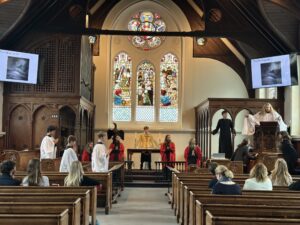
Summer term, Week 4 – Music and Physics: composing a test tube symphony
The Physics and Music departments teamed up to set Lower School pupils the challenge of playing and composing music using instruments focused on the physics involved. A carousel of musical stations, including water-filled test tubes, plastic trombones, oscilloscopes and boomwhackers offered varied results on the same physics principal, which is that the longer the air tube the lower the note (ie frequency of sound) produced. This is due to the formation of stationary waves in the tube, as Mr Martin (Head of Physics) explained carefully. Guided by Mr Martin and Miss Heather (Music), pupils were able to understand the principal and see it in practice in a variety of instruments. Noisy, but very fun!
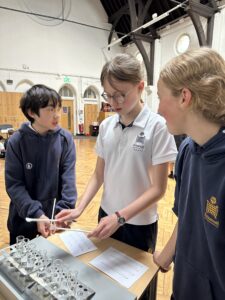
Summer term, Week 3 – Chemistry and Film: using a drone to film an ionic bond in action.
For this week’s Senior Expo, the Chemistry department’s newest amateur film director, Mr Harry Bell, took to the Sports Field with his own cohort of pupil-electrons to stage and film a moving model of an ionic bond between sodium and fluorine to create sodium fluoride. Sixth Form scientists and friendly helpers made the most of the Spring sunshine to re-enact the movement of an electron as it is drawn from sodium towards fluorine. Perhaps with a smidge of not-entirely-scientific artistic licence, the mobile electron in this demonstration moved from Na to F with a hint of a twirl. In good scientific spirit, however, the experiment was repeated several times to verify the process, and the ‘sodium’ pupils behaved suitably joyfully at having lost their extra negativity, while the ‘flourine’ group reflected their increased negative charge.
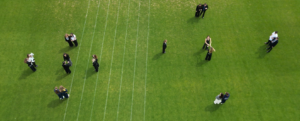
Summer term, Week 2 – RPE and Business Debate
This week a group of articulate Lower School pupils took each other on for the Expo Debate pitting Business against RPE (Religion, Philosophy and Ethics) on the motion that ‘This house believes that big business should be taking social responsibility more seriously.’
The content of the arguments and grasp of the concepts involved were very impressive, encompassing Corporate Social Responsibility, GDP, greenwashing, economic asymmetry, the National Minimum Wage Act and wealth inequality. Concrete examples were also drawn on, with references to case studies including recycling initiatives by major global corporations. The tension between employment (and profit) versus sustainability was the major focus of discussion. Most impressive perhaps was the spirited and sustained rebuttal by both sides, who fought their position until the debate had to be wound up to return to lessons! In the final vote, the motion was carried.
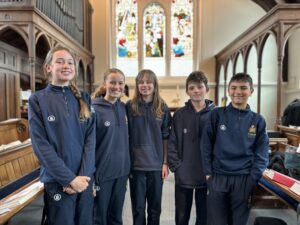
Spring term, Week 6 – English and Economics: what can literature tell us about the economy?
It was another packed sixth form centre this week for the last of these interdisciplinary Expo events of the Spring Term, delivered by our Heads of English and Economics. Mr Tong (Economics) invited Sixth Form students and their Middle School peers to examine a selection of excerpts from landmark novels to identify a range of economic theories being presented and critiqued. Most students easily recognised Orwell’s Animal Farm, with Communism and Marxism at its heart. Miss Routledge (English) underscored how important a knowledge of economic theory is to understand fully this novel, as so many others. Margeret Atwood’s Handmaid’s Tale offered a representation of the removal of currency in its dystopian world, where people turn to bartering and trading food. The novel’s use of financial control in cutting women off from their bank accounts as a means of oppression was also discussed. Other theories showcased included the glorification of capitalist society and consumerism in Bret Easton Ellis’ American Psycho, the dangers of combining AI and capitalism in The Fear Index by Robert Harris and Lionel Shriver’s, The Mandibles which imagines economic collapse in America due to the collapse of the dollar.
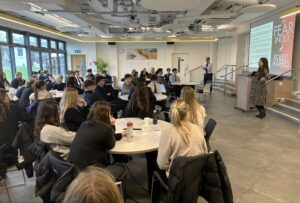
Spring term, Week 5 – Maths and Politics: Can Maths change the result of an election without cheating?
Turnout was impressive for this week’s LS Expo, as Maths and Politics adapted their brilliant exploration of the influence of maths on election outcomes for pupils from Year 6-9. With eyes on two major elections later this year, pupils learned how big a part maths plays in the run-up to an election as well as to the counting of votes, including in the use and abuse of data and statistics in opinion polls. There were some perceptive questions from pupils curious about the composition of the American system. Mr Bishop (Head of Maths) and Mr Fuller (Head of Politics) explained the idea of constituencies and the connection between votes and seats in parliament under the current first-past-the-post system. With a simulated ‘Emanuel election’ between 5 Teacher candidates, pupils saw how 5 different voting systems would see a different candidate win in each case. They compared the FPTP system to the Run-off method (as used in French Presidential elections) and then to a points-based system, allocating points to candidates based on preference voting. Getting out their calculators or relying on some mental maths, they worked out who would win under the more complicated points system. Happily for all, Mr Milne proved the winner with that method.
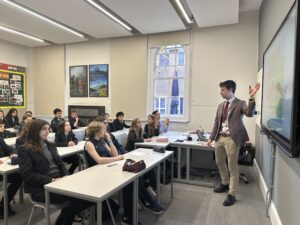
Spring term, Week 4 – Maths and Politics: How influencial is maths in the outcome of an election?
Senior Expo this week offered by Maths and Politics offered a fascinating explanation of how significant an influence Maths can have on election outcomes, and not just in the counting of votes. A packed Sixth Form Centre of apprentice politicians or political advisors and mathematicians learned the detail of constituency systems, polling data and statistical ‘presentation’. A topic of general relevance in an election year (both sides of the Atlantic) but even more pertinent as many in the Sixth Form look forward to their first time as voters. Mr Bishop (Head of Maths) explained differing voting systems of varying complexity, from the UK’s easily understood first-past-the-post to European countries’ more complex proportional representations systems including single transferrable vote, or the ‘Alternative Vote’ system which was proposed here under the Lib Dem coalition. An ‘Emanuel election’ was run between a number of ‘teacher-candidates’ to demonstrate how each distinct election system would give victory to a different candidate! Under the first-past-the-post system, the ‘new PM (or HM)’ would have been Mr Harris (Geography). Mr Fuller (Politics) brought up the thorny issue of tactical voting, which some of the pupils admitted they were considering in their first go at the ballot box.
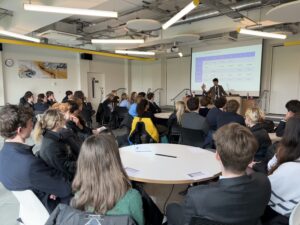
Spring term, Week 3 – Music and French: (why) can you rap better in French?
The Music and French Departments collaborated for this week’s Expo for Lower School to dig into the popularity of French rap music. Miss Cleobury (Music) explained the technical musical aspects of the strong, simple riffs and syncopation, along with the roots of rap music going back to the slave trade. Dr Ni Cheallaigh (French) showed how France’s colonial past in Africa led to such a strong African influence and shared some of the most popular examples of French rap and hip-hop songs from the most successful artists. The event culminated in a very fun sing-off as Year 7 and 8 pupils in groups sang the chorus from the French song ‘Ramenez la coupe à la maison’ (Bring the Cup home), a huge hit when France won the Men’s Football World Cup in 2018. ‘Allez les bleus, allez’!
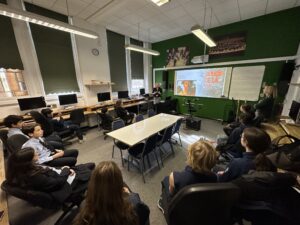
Spring term, Week 2 – Art and Photography: Cyanotype Photography
This very hands-on Expo event was led by Head of Art, Mr Reed who explained that cyanotype is a proto-photographic technique, one of the earliest camera-less types of photography using UV light and cyanotate. He also pointed out the chemistry aspect in the use of the chemicals to process the images once they had been pressed in the UV light box. The process was used in the 1840s to reproduce high-quality images of plants and flowers, notably by botanist Anna Atkins, and the Year 6, 7 and 8 pupils were keen to have a go themselves. They produced their own cyanotype artworks, choosing the elements to form a collage which was then ‘burned’ by the light box onto the cyanotate paper. Pupils heard about how a similar effect can be produced by the UV rays of the sun, and that some artists make a living with images produced entirely through this method.
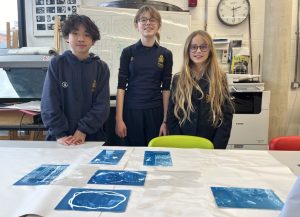
Spring term, Week 1 – PE and Sport: Health, Fitness and Performance
Very appropriately for January while New Years ‘get-fit’ resolutions are still fresh in our minds, PE & Sport kicked off the Expo Schedule for Spring with a well-attended session on Health, Fitness & Performance, led by Rugby Coach and Strength & Conditioning coach Mr Kelly. Year 10-13 pupils were keen to understand the science and facts behind their path to fitness and performance improvement in a variety of sports, including cricket, athletics, swimming, rugby and netball. Starting with some important myth-busting, Mr Kelly highlighted how essential it is for any training programme to complement the specific sport and be tailored to each individual in order to prevent the training working against optimal performance or even causing injury. Key questions answered in the session included ‘Why get strong?’; ‘How to get fast?’ and ‘Does the gym make you fitter?’. Well-planned S&C should prevent injury by building strength, flexibility, range of movement as well as bone density and ligament strength. Some amusing photographic evidence of footballers Wayne Rooney and Christiano Ronaldo, contemporaries at Man Utd in their youth, made very clear how investment in good S&C can also help career longevity in high-performance sport. The parting message of the session was the enormous value of simple basics, including a good diet and a good night’s sleep.
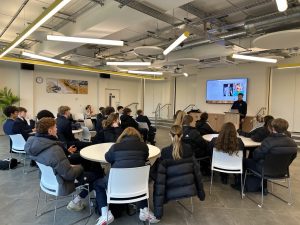
Autumn Term, Week 12 – Geography and History: Maps – revealing more than just location?
The Lower School Expo on Tuesday 5th December took the Year 6-9 pupils on a trip through time via a series of fascinating maps. These landmark documents from the medieval period to the modern Mercator Map we are all familiar with, visually mapped out how people’s perception of the world has transformed and evolved over centuries. Guided on their tour by James Bowler from History and Politics, pupils began by analyzing the Mappa Mundi (still viewable in Herefordshire Cathedral), which situates Jerusalem at the centre of the Christian world and the Garden of Eden encircling the circumference. Pupils showed great curiosity and perceptive observations as they interacted with the maps, and were fascinated by the Catalan Atlas showing the trade routes connecting the medieval world, as well as depicting the richest man ever to have lived (even more than Jeff Bezos), Mansa Musa who was leader of Mali in the 13th century. Pupils remarked on the ‘shrinking’ of Europe relative to the so-called new world as global power dynamics shifted centre. The contemporary effect of map-making was also discussed when they looked at the Sykes-Picot map reflecting the carving up of the Middle East by the British and French Foreign Secretaries following World War 1, which continues to affect global politics today. Having large-scale copies of the physical maps to interact with made the session incredibly interactive and engaging for pupils, who were impressive in the sophistication of their understanding of the complex issues involved.
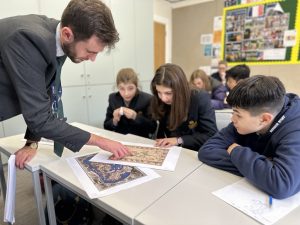
Autumn Term, Week 11 – Geography and History: Orientalism, the politics of us and them
Geography and History combined to shine a light on Edward Said’s seminal text, Orientalism which has done so much to help people understand the thinking processes behind geopolitics, to redefine the term ‘orientalism’ to turn it on its head and expose this ‘Western lens’ as one of the sixth-form students present described it. James Harris (Head of Geography) started by outlining how important this text was as a founding text of postcolonial theory, highlighting imperialist and ethnocentric attitudes which produce a global dichotomy of us and them.
Stephen Jones (Head of History) then illustrated cleverly how this mindset can be seen as a legacy of the Crusades, which are often depicted very romantically in historic narratives emerging from the Victorian era, itself an imperialist age and which sought to justify Crusade and colonialism. With a few simple, well-chosen images he showed effectively how this positive view of crusade has permeated our popular imagination, and images of Batman or the logo of the Daily Express newspaper were very clear examples. Crusade has come to mean a ‘good’ fight against something bad, compared with ‘jihad’ which has the same literal meaning as ‘crusade’. Mr Jones pointed to how much Muslim scholars have taught Western scholars over the centuries which we still use on a daily basis, such as the Arabic numbering system, mathematics, poetry and trade.
Finally, the audience heard how the teaching at Emanuel responds to this, for example by revamping the Lower School curricula in the two subjects to counter, or at least consider, these attitudes and assumptions.
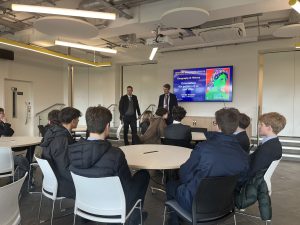
Autumn Term, Week 10 – PE and Sport: Health, Fitness and Performance
A fun and chatty Expo on ‘the power of strength and conditioning’ was delivered to the Lower School this week by John Boret, the school’s specialist S&C coach. After starting strong by making sure everyone was sitting up straight with good posture, Mr Boret showed the packed classroom of pupils how weight training can often be over-simplistic and done incorrectly, thereby leading to more harm than good. In a very interactive session, he delved into biology, biomechanics and skeletal musculature to demonstrate the complex processes involved in underpinning power, strength, fitness and sports performance. Pupils were keen to hear how he had guided pupils in other schools such as Eton from a lighter frame to impressive levels of physical strength and fitness, through S&C done properly over a period of several years. Some came to learn how S&C might help them improve in their favourite sports, such as tennis, netball, or hockey. It was welcome news to the Year 6-9 cohort to hear that this sort of training doesn’t have to involve boring repetitive routines and can be lots of fun.
Autumn Term, Week 8 – Physics and R.P.E. – Does the universe require a creator?
On Tuesday, four Year 12 Physicists and four Y12 R.P.E. students worked in cross-disciplinary teams to debate the motion “Does the Universe require a creator?”. Students had completed extensive research and skillfully illustrated both sides using ideas from science and philosophy that far surpass the KS5 curriculum. Pupils in the audience then asked a range of questions to challenge the speakers under the watchful eye of the chair, Isabelle in Y12. All present enjoyed the event and it was delightful to see how Physics and philosophy can compliment each other”
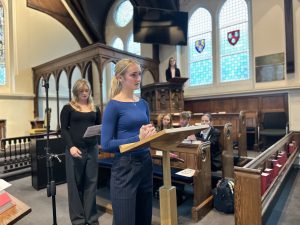
Autumn Term, Week 7 – French and English: How to Translate Magic?
Lower school enjoyed a creative Expo event today in which Miss Routledge (Head of English) and Mr Kidd (Head of MFL) explored the challenges of translating English texts into other languages. Miss Routledge set pupils the challenging task of creating their own names for characters in Harry Potter whilst Mr Kidd had pupils guessing the meaning of idioms in foreign langauges (such as ‘Ce n’est pas la mer à boire’, literally It’s not drinking the sea’ which means ‘it’s not that hard.’)
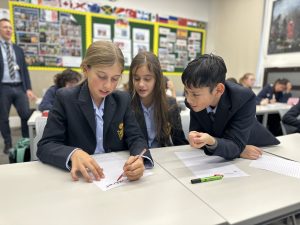
Autumn Term, Week 6 – Computing and Art: Cut out animation
What do the French artist Henri Matisse, cinema pioneer Georges Meliès and scratch coding share in common? Lower school pupils attending this week’s Computing & Art Expo event learned that cut-out animation produced through scratch coding has artistic and visual roots in the development of cut out art pioneered by these two famous French figures. Year 7 Coding club members Jude, Walt and Milla showed examples and explained how they produced specific aspects of animations shown, including undulating waves beneath a moving ship and orbiting planets, which reference Meliès’ Voyage à la lune or Journey to the Moon. Teacher of Computing, Mr McKenzie, explained that although deceptively simple, the Python coding embedded in scratch coding can produce randomised movement of images set to a timer for a specific duration or within a time frame, of the sort used often in game design to increase unpredictability and enjoyment.
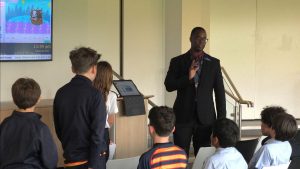
Autumn Term, Week 5 – Computing and Maths: Flocking Boids and Random Dungeons
Phoenix (Year 12) gave a talk on the algorithm behind flocking birds, explaining the use of vectors and how birds flock together without colliding. Robert (Year 12) focussed on using random number generations to add variability to computer games. Great work!
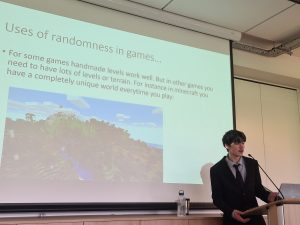
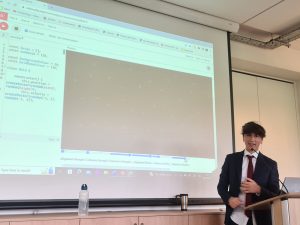
Autumn Term, Week 4 – Classics and Latin (Geography): A Virtual tour of Ancient Athens
Almost thirty Lower School pupils buckled up for a thrilling whistle-stop tour of ancient Athens on Tuesday 26th September for a LS Expo event combining Classics, Latin and Geography. In a brilliant demonstration of the educative value of Google Earth when supported by superb subject knowledge, classicist Polly Philp was the interesting and informative ‘tour’ guide. First stop was the ancient Kerameikos (cemetery), leading to discussion of why cemeteries were placed outside the city walls. Perceptive pupils suggested motives linked to superstition or more scientifically, to do with basic hygiene. Pupils visited the Agora (marketplace and temple to Hephaestus, the so-called blacksmith god), then moving on to the Stoa or colonnade used for the very particular Greek style of learning involving lots of discussion and chatty pupils (school may not have changed much). Next stop was the theatre of Dionysus, one of the oldest theatres in the world and seating six thousand people. Pupils were fascinated to learn about the Theoric Fund, ancient Greek outreach which saw wealthy citizens donate money to enable poorer compatriots to see plays for free. No visit to Athens, modern or ancient, could skip the Acropolis, the summit of the city. Pupils showed impressive knowledge of the large variety of Greek gods to correctly identify at the Acropolis the temple to Athena Nike, Greek goddess of victory and another major temple to Athena, the Parthenon. They learned more about the site’s journey through history, having been a mosque under the Ottoman Empire and suffering a very damaging explosion when used as an arsenal for weapons and gunpowder in the 17th century. The question of whether the pieces of the Acropolis taken home as holiday souvenirs by Lord Elgin should be returned to modern Greece was left as something pupils could take away to discuss at home.
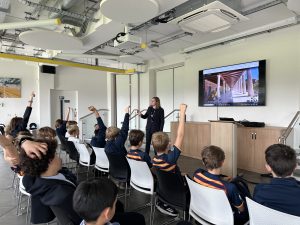
Autumn Term, Week 3 – Film and Psychology: Psychopathology in Film
How do you cope if you can’t form new memories and keep forgetting where you are, all while you are investigating the murder of your own wife? This was the dilemma at the heart of the first Senior School Expo of the new academic year, which examined how the film Memento (directed by Oppenheimer’s Christopher Nolan) dealt with memory function and memory loss. There was an excellent turnout and more than fifty pupils from years 10 to 13 on Tuesday were captivated as Head of Film John Dunley explained the mind-boggling intricacy of the Syd Field ‘paradigm’ (narrative structure) of this landmark movie. Pupils contributed their own ideas as to why Nolan used a two-track exposition combining the colour achronological storyline with a chronological black-and-white plot progression. Soren (U6th) suggested it was an innovative experiment, and another idea was that this structure mirrored the confusion in the protagonist’s brain. A Level Psychology pupils, Poppy and Cristina, then explored the scientific basis for the psychological elements in the film, including the rare case of Clive Wearing, who suffered chronic short-term memory loss despite his semantic and procedural memory remaining intact. They also explained the fascinating, perhaps alarming, research by Elizabeth Loftus showing how memories can be changed or even fabricated by external prompts which ‘plant’ memories of things that never happened at all. As with so many discussions involving psychology, Freud was given the last word for his theory of repression as a defence mechanism, winding up a particularly memorable event.
Autumn Term, Week 2 – Film and Psychology: Memory on Screen
The first Lower School Expo of this academic year was a memorable collaboration between the Film and Psychology departments. Using clips from the Disney Pixar animated movie, Inside Out, they presented a fun, stimulating discussion of how psychological processes can be explained and represented in movies to help us understand how our brains work. Mr Dunley, Head of Film, talked through movie clips including the idea of our earliest memory being formed as a golden ball which we store and draw on later, and ‘islands’ as ways of thinking about different aspects of our personalities, such as a ‘goof-ball island’. Lower School pupils had lots of brilliant ideas of their own, with one suggesting they must have a ‘reading island’ as part of their personality. Miss O’Donnell, Teacher of Psychology, then explained the different types of memory, such as ‘episodic’, ‘semantic’ or ‘procedural’ (ie muscle memory), and the pupils had to try explaining to each other step by step how to tie shoe-laces. This was an amusing demonstration of how instinctive ‘procedural’ memory is, contrasting with ‘semantic’ memory which deals with facts and knowledge. Miss O’Donnell pointed out that film can help us to understand Psychology and other sciences, but it can at times get things wrong or be behind the latest research. For example, the ‘memory dump’ depicted in Inside Out is something that psychologists might dispute, as they believe ‘dumped’ memories can be retrieved.
